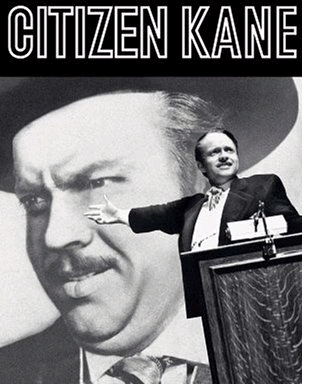Jersey Shore is taking its “talent” to South Beach
 Tonight is one of the most anticipated television events of the summer: the return of the Jersey Shore.
Tonight is one of the most anticipated television events of the summer: the return of the Jersey Shore.
The cast of the mega-popular MTV reality show have been brought back for a second season, this time making like Lebron James and taking their talents to South Beach, Miami.
Just like James’ decision to join Chris Bosh and Dwyane Wade on the Miami Heat, Jersey Shore is surrounded by controversy.
For those somehow unfamiliar with the Jersey Shore phenomenon, it’s a really simple concept: MTV put eight young people, primarily of Italian-American descent, into a house on the boardwalk of Seaside Heights, New Jersey.
All the cast had to do was work together at a local novelty t-shirt shop, go out together and, of course, allow the cameras to follow them wherever they went.
As young people are wont to do, they got drunk, hooked-up with each other or people at the local night spots and, above all else, got into fights, culminating in cast member Ronnie Ortiz-Magro being arrested for aggravated assault.
Many Italian groups protested the show, especially Unico National, who wrote a formal letter to MTV asking the network to cancel the show before its release on the grounds that Jersey Shore was a “direct, deliberate and disgraceful attack on Italian Americans.”
More negative publicity swirled around the program when previews showed petite cast member Nicole “Snooki” Polizzi taking a punch to the face from a drunken party-goer at a local club. Although Snooki was physically unharmed, the episode aired with the assault cut out and bookended with public service announcements about the dangers of domestic violence.
Despite these controversies, the show took off in popularity and phrases like “The Situation”, “Grenade” and “Fist Pump” have entered the popular lexicon. Although it has a loyal following, there are many who cannot stand the show.
Those critics are right. At its heart, Jersey Shore is trash television that appeals to the lowest common denominator.
But ask any archaeologist or anthropologist – a culture’s garbage can be incredibly revealing about society, and Jersey Shore is no different.
The show provides a glimpse into a world full of buff bodies and fragile egos, where a total lack of self-awareness meets with a hunger for fame with explosive results.
A close examination of Jersey Shore can serve as a launching pad for discussions of all kinds of serious issues. Topics can include the educational system in the United States after hearing the cast mangle the English language, the state of healthcare in North America as they spend an equal amount of time working out and destroying their skin with tanning beds or religion as Pauly “DJ Pauly D” DelVecchio tries to reconcile his Israeli girlfriend’s Judaism with his own Roman Catholic upbringing.
Most intriguing is the casts attitudes towards sexuality, gender roles and family.
For example, although all the cast members enjoy some level of sexual promiscuity, they also prize loyalty to one’s partner: Sammi "Sweetheart" Giancola is incredibly possessive of her boyfriend Ronnie, but offers no objection when Jennifer “JWoww” Farley cheats on her boyfriend with Pauly D.
Similarly, Angelina “Jolie” Pivarnick objects when her single male roommates bring home some young ladies to enjoy the house’s hot tub. However, it’s later revealed that her boyfriend is a married man and it’s implied that she had a fling with Michael "The Situation" Sorrentino on their first night in the house.
Angelina made a quick exit from the show after a fight with her boyfriend “forced” her to miss a shift at work, resulting in her eviction from the house. Relieved that she’d been ousted from the house, the remaining roommates declared that they were a family – having only lived together for approximately one week.
At one time or another all of the female castmates declare that they want to settle down and start a family with a good guy. Most desperate to find marital bliss is Snooki, who spent the entire season trying to bring men home from local clubs.
“My ideal man would be Italian,” Nicole said in the second episode of the series. “Dark, muscled ... juice-head guido.”
When Vinny Guadagnino’s family came to visit the Shore House, all the female roommates expressed their admiration for her as she cooked for them and cleaned their house, even cutting her son’s food for him. That’s how a proper woman acts, in their mind.
Yet they continued to do backflips in mini-skirts and thongs, make-out with random men (and sometimes women) and have one night stands with strangers.
Most fans of the show call Jersey Shore a car wreck – their morbid curiosity prevents them from changing the channel - but I think it’s the inherent hypocrisy in the actions of the cast that is fascinating.
Where do these people come from? How did they develop such a jaundiced view of the world? What do their parents think of the show? It’s a fountain of rhetorical questions.
It’s a stunning look at a segment of North American culture that is engrossing and depressing, educational and trashy, entertaining but dulling. The second season has big shoes to fill, but I expect it’ll be equally fascinating, at the very least to see how fame has altered the housemate’s already twisted perspective on reality.
Citizen Kane Syndrome
 According to the American Film Institute, Citizen Kane is the greatest movie ever made, but when was the last time you saw it on TV? Only high-brow movie channels like Turner Classic Movies or maybe Bravo! will show it, and likely not very often. You’ll never see it as a Fox Saturday matinee or as part of Peachtree’s weekend movie marathon.
According to the American Film Institute, Citizen Kane is the greatest movie ever made, but when was the last time you saw it on TV? Only high-brow movie channels like Turner Classic Movies or maybe Bravo! will show it, and likely not very often. You’ll never see it as a Fox Saturday matinee or as part of Peachtree’s weekend movie marathon.
Why is that? It’s indisputably great, having influenced just about every film made after it and changing the way people saw cinema. But plunk your average movie-goer down in front of Orson Welles’ opus, they’ll likely fall asleep or try switching the channel.
This is what I like to call Citizen Kane Syndrome.
CKS afflicts many movies, but Citizen Kane has all the symptoms: an older, influential work that has become a fixture in culture. It lost its lustre because of its cultural significance.
Contemporary viewers don’t enjoy it because they’re already familiar with many of the artistic touches that made the film brilliant.
Most people don’t realize it but Citizen Kane was the first film to show the ceiling in a room. It’s true. Cameras had never been canted to such a degree that the roof was visible – until 1941 when Citizen Kane came out. It was the first movie to use deep focus throughout. It was pioneered special effects make-up. And on and on.
At the time, these were exciting new narrative techniques. Today? Mehn.
There are countless other aspects of the film that, at the time, were revolutionary, but today are taken for granted.
And, really, how thrilling can a plot twist be when Rosebud’s identity is revealed in a spoof on Tiny Toons?
It happens in every corner of pop culture too.
Stan Lee and Jack Kirby’s incredible run on Fantastic Four launched the Marvel Age. But some of its magic has been lost as the medium and craft have built upon that foundation.
The Beatles were once bigger than Jesus, but now fans of rock music expect faster beats, more complex chords and higher production values.
In Cold Blood remains a chilling look at two murderers, but its impact as creative non-fiction is not what it once was, since the New Journalists (and the New New Journalists, for that matter) have followed Truman Capote’s lead.
CKS forces media consumers into the tricky position of having to consider the historical context of the art not just politically or economically, but creatively as well. This can be a taxing requirement, and it only takes away from the viewing experience.
At the same time, there are some films, books and bands which remain timeless. Shakespeare is the easy example, but the Wizard of Oz (the movie, not the novel) also comes to mind.